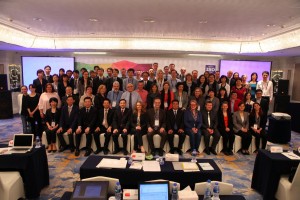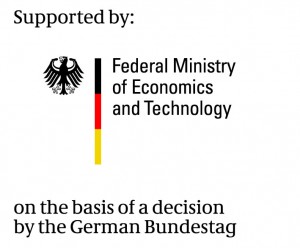New Standards in Biotechnology
A new working group for data processing and integration in biotechnology has been set up by the International Organization for Standardization, ISO. The working group aims to define consistent standards for the formatting, transfer and integration of life science data and models. The working group will be led by Martin Golebiewski, a biochemist at the Heidelberg Institute for Theoretical Studies (HITS). Interested scientists are invited to participate.
Modern biotechnology is a rapidly growing field of research. Worldwide, numerous laboratories and research groups are producing huge amounts of data that they analyze with computers and then use to develop computational models. There are currently few generally binding standards for the laboratory experiments and the computer-aided processing of the results. ISO intends to change this by establishing standards for the formatting, transfer, and integration of the data and models generated by different methods. Such consistent standards would be of high value for industrial, agricultural, and medical applications.
During the last meeting in Shenzhen, China, the ISO Technical Committee ISO/TC 276 Biotechnology founded a new working group for „Data processing and integration“. The objective is to standardize interfaces between different data formats in order to facilitate the exchange and combination of data and computer models. With this aim, the committee will integrate “de facto” standards currently used in science.
Martin Golebiewski, from the Heidelberg Institute for Theoretical Studies (HITS), Germany, has been appointed convener of the new ISO working group. He is already coordinator of the German NORMSYS-Project which focuses on standardizing models and data in systems biology. The project is funded by the German Federal Ministry for Economic Affairs and Energy and is carried out in collaboration with the University of Potsdam and the Berlin-based start-up business LifeGlimmer GmbH, with the aim of bringing system biologists in academia and industry together to agree on standards. “The new ISO working group will help us to facilitate the transfer of scientific results into industrial applications by establishing international standards for data and computer models,” says Martin Golebiewski. “As the secretariat of this committee is at the German Institute for Standardization (DIN), and experts from Europe, Japan, the US and China have already joined it, this effort will strengthen the relationship between research initiatives in Germany and related efforts in other countries worldwide.”
Interested scientists are invited to participate in the initiative through their national committees. For further information, please send an email to martin.golebiewski@h-its.org or bjoern.hermes@din.de.


Scientific Contact:
Martin Golebiewski
Scientific Databases and Visualization group (SDBV)
Heidelberg Institute for Theoretical Studies (HITS)
Phone: +49-6221-533-281
Email: martin.golebiewski@h-its.org
Press Contact:
Dr. Peter Saueressig
Head of Communications
Heidelberg Institute for Theoretical Studies (HITS)
Phone: +49-6221-533245
Peter.saueressig@h-its.org
www.h-its.org
Twitter: @HITStudies
Hans-Peter Ahle
Phone: +49 30 2601-2724
Email: hans-peter.ahle@din.de
DIN Deutsches Institut für Normung e. V.
Am DIN-Platz, Burggrafenstraße 6,
10787 Berlin
Internet: http://www.din.de
About DIN:
DIN is a privately organized non-profit provider of standardization services. More than 30,000 experts from industry, research, consumer protection and the public sector work with DIN to develop market-oriented standards and specifications that promote global trade and innovation, assure efficiency and quality, and help protect the environment and society as a whole.
About HITS
HITS, the Heidelberg Institute for Theoretical Studies, was established in 2010 by physicist and SAP co-founder Klaus Tschira (1940-2015) and the Klaus Tschira Foundation as a private, non-profit research institute. HITS conducts basic research in the natural, mathematical, and computer sciences. Major research directions include complex simulations across scales, making sense of data, and enabling science via computational research. Application areas range from molecular biology to astrophysics. An essential characteristic of the Institute is interdisciplinarity, implemented in numerous cross-group and cross-disciplinary projects. The base funding of HITS is provided by the Klaus Tschira Foundation.

